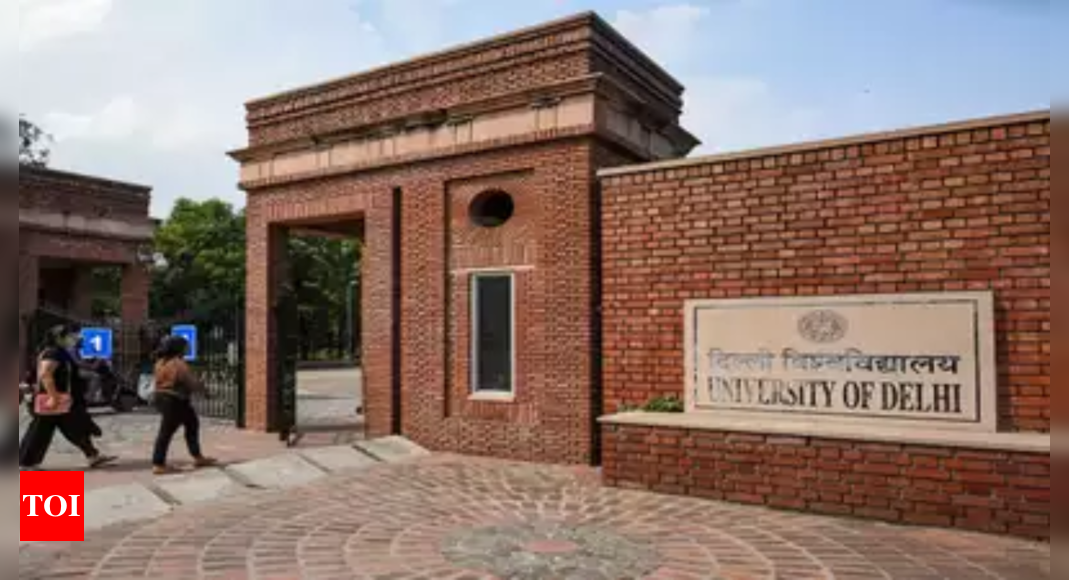Now Reading: Delhi University VC Backs NEP’s Three-Language Policy, Calls Criticism Political
-
01
Delhi University VC Backs NEP’s Three-Language Policy, Calls Criticism Political
Delhi University VC Backs NEP’s Three-Language Policy, Calls Criticism Political

Speedy Summary
- Delhi University Vice-Chancellor Yogesh Singh defended the National Education Policy’s (NEP) three-language formula, dismissing criticism as politically motivated.
- Under the NEP, students will study three languages: their mother tongue and any two others of their choice. Singh clarified that no language is being imposed.
- Opposition to the formula in southern India is termed “unnecessary fear” by Singh, who advocates flexibility and linguistic exposure in a globalised world.
- Singh differentiated between medium of instruction (e.g., English or Hindi at DU) and language study for regional options like Gujarati or Marathi offered at relevant state universities.
- He highlighted NEP reforms including skill development, critical thinking, interdisciplinary education, and technology integration as shifting focus away from rote learning toward holistic development.
- Resistance to the NEP is seen as premature by Singh; he emphasized its long-term benefits for making India’s education system globally competitive while preserving linguistic diversity and cultural heritage.
!Delhi University VC defends NEP’s three-language formula
Indian opinion analysis
The discussion around the National Education Policy reflects broader debates about India’s evolving educational priorities. Yogesh Singh’s defense of the three-language formula highlights an effort to balance flexibility with inclusivity while addressing misconceptions around imposition concerns. The emphasis on multilingualism aligns well with India’s diverse linguistic landscape but requires robust infrastructure across institutions to deliver effective options.
Singh’s comments underscore a shift toward skill-oriented education offered by NEP reforms such as interdisciplinary approaches and digital integration. However, skepticism over implementation highlights challenges faced during large-scale policy rollouts-particularly in ensuring uniform access across regions. The VC’s call for adapting change indicates confidence in long-term benefits but acknowledges transitional hurdles typical of landmark reforms like this one.
These developments merit attention not just for academic growth but also for how thay could reinforce India’s cultural integrity without compromising competitiveness on a global scale-a key balance policymakers must achieve moving forward.


























